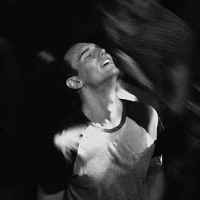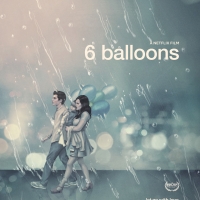Playing out as a poetic yet complex drama, Ryusuke Hamaguchi’s Evil Does Not Exist is a cautionary tale on the grandiose effects consumerism and capitalism can have on the environment and one’s home. Living in a rural, isolated village, the townsfolk work together to keep the serenity of their environment afloat and functioning. Takumi (played by Hitoshi Omika) emphasizes that a balance is needed when it comes to honoring the original land with unavoidable changes that take place. A handyman of sorts, he lives with his daughter Hana (Ryo Nishikawa) while attending to various tasks to keep the community in order. Upon hearing that a company in Tokyo is looking to renovate their pristine surroundings into a glamping (“glamorous camping”) site, the residents come together for a meeting to demonstrate and explain how the city’s plans will inevitably destroy all they have come to build.
In stark contrast to the workers in Tokyo and how their business depends on monetary gains and quick progress, the villagers maintain a near zen-like state of collecting their own water, chopping wood, and making simple yet delicious noodle meals. The film speaks volumes in that which is left unsaid; Hamaguchi’s intentional shots of these daily actions require patience and clash against the urbanite’s mindset of everything aiming to move quickly and efficiently. When the two Tokyo employers attempt to chop wood or gather water for use, they realize the strength and skill it takes to accomplish what’s needed for even basic necessities.
Unlike the other staunchly opposing villagers, Takumi is reluctant though open to hearing the two city representatives ideas and plans for the land. Stern though patient with them, they follow him around as he goes about his daily tasks, though often forgetful to pick up his elementary school daughter by the end of the work day. Like the ecosystem as a whole, Takumi walks a fine line keeping his equilibrium in all aspects of his life, a sentiment that over time rings significant as intruders interact with (and interrupt) their new landscape.
In the film’s sudden finale, arguably more questions than answers rise when considering its interpretation; does evil really exist? If so, who commits the wrongdoing? Hamaguchi’s film is cinematically stunning and touches on thoughtful themes of humanity and nature versus nurture. In one scene with Takumi in the car with the two Tokyo representatives, Takumi states that deer in the wild won’t attack humans unless they are protecting their young or are gun-wounded, a notion that comes full circle for the film’s closure. Occasionally the film loses some steam, perhaps not as emotionally resonating as it could be, though Evil Does Not Exist remains a precarious act of balance that only a deft hand can succeed in conducting.
You can watch Evil Does Not Exist on the big screen at Austin Film Society today through Friday, May 17th. Purchase tickets for you and your film crew here.





